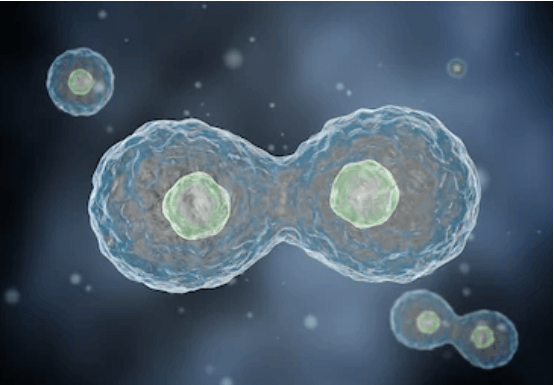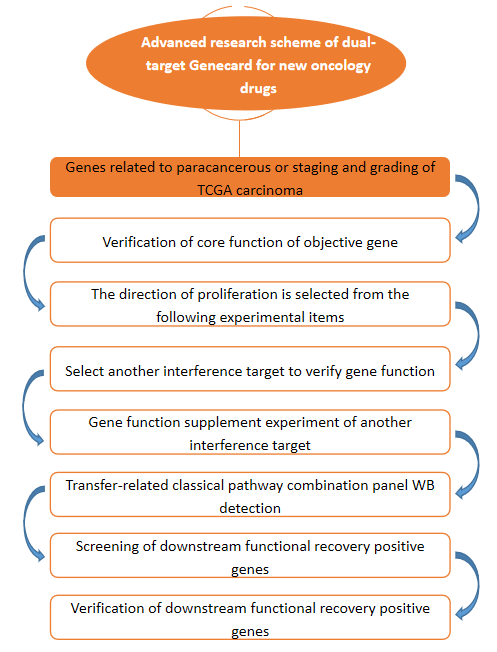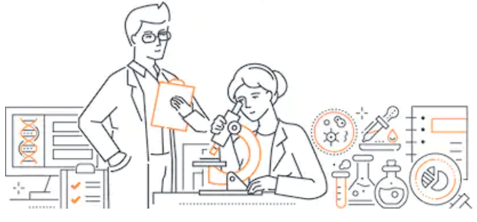Two-cell Research Scheme of Genecard, A New Tumor Drug Target
Based on TCGA big data, we analyzed and verified the new functional genes that had not been reported in the studied tumors, and discussed the molecular mechanism of their pathogenesis, so as to provide a preliminary data basis for the determination of follow-up antineoplastic drug targets and biomarkers.

Through TCGA big data, we analyzed the genes that are highly expressed or related to disease staging and grading in cancer tissues, and analyzed the candidate genes that have not been reported in the studied tumors through the disease key gene database. Using lentivirus-mediated RNAi technology, several candidate genes were RNAi, and the infected cells were counted by Cellomics high connotation function screening platform for 4-5 days. The genes affecting cell proliferation were found. The positive results of at least 3 proliferation direction functional experiments and 2 metastatic direction functional experiments of the gene in two cell lines were obtained. After interfering with the target gene in a cell line, the combination of classical pathways related to metastasis was verified by WB. According to the results of WB panel, a positive mechanism gene was selected to construct a virus that interfered with or overexpressed the target gene on the cell line, and interfered with or overexpressed the downstream mechanism gene on the cell line. The changes of cell proliferation ability were observed by HCS scanning for 5 days to verify the functional recovery effect of the downstream mechanism gene on the target gene. The positive response results of a proliferation-related and a metastasis-related functional experiment were obtained.

Transfer-related Classical Pathway Combinations Panel
AKT1, p-AKT (Ser473 or Thr308), mTOR, p-mTOR (Ser2448), ERK1/2, p-ERK1/2 (Thr202+Tyr204), P38, p-P38 (T180+Y182), MYC, β-Catenin, p-β-Catenin (S33+S37), NFkB-p65, p-NFkB-p65 (Ser536), CDH1 (E-Cadherin), CDH2 (N-Cadherin), MMP2, MMP9, FN1, VIM, Snail, Slug, TWIST and other 22 genes.
Service Flow

Our Advantage
Mature and reliable experimental analysis platform of Genecard two-cell research program: rich project experience, participation in major projects, high-level cooperation results published.
Based on high-quality data analysis, pre-research and verification of the contents and methods of analysis, it is indeed mature and feasible.
Creative Proteomics leads a rich team that uses the most rigorous experimental solutions and internationally recognized experimental techniques for Genecard two-cell research program to obtain your customized information. Use the most accurate experimental results to help you better carry out tumor-related scientific research.
Reference
1. Junfeng Bi, et al. (2019)."Oncogene Amplification in Growth Factor Signaling Pathways Renders Cancers Dependent on Membrane Lipid Remodeling." Cell Metabolism.
* For Research Use Only. Not for use in the treatment or diagnosis of disease.
Related Services:




